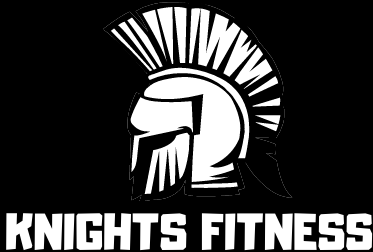Introduction
What is keto diet and why?-What foods do you eat on keto diet? The ketogenic diet (keto diet) is a low-carb, high-fat diet that forces your body to burn fat for energy instead of carbohydrates. This is achieved by drastically reducing your carb intake and replacing it with fat. When your carb intake is very low, your body enters a metabolic state called ketosis. InThe keto diet has been shown to be effective for weight loss, improving blood sugar control, and reducing the risk of certain diseases. However, it is important to note that the keto diet is not a magic bullet and it is not suitable for everyone.
The keto diet can be very effective for weight loss. This is because it forces your body to burn fat for energy, which can lead to a calorie deficit.
The keto diet can be helpful for people with type 2 diabetes or prediabetes. This is because it can help to improve insulin sensitivity and lower blood sugar levels.
The keto diet may help to reduce the risk of heart disease by lowering cholesterol levels and improving blood pressure.
The keto diet has been shown to improve brain function in people with Alzheimer's disease and other conditions. This is because the ketones produced by the keto diet can provide fuel for the brain.
The keto diet can be helpful for people with type 2 diabetes or prediabetes. This is because it can help to improve insulin sensitivity and lower blood sugar levels.
The keto diet may help to reduce the risk of heart disease by lowering cholesterol levels and improving blood pressure.
The keto diet has been shown to improve brain function in people with Alzheimer's disease and other conditions. This is because the ketones produced by the keto diet can provide fuel for the brain.
Ketogenic Diet Disadvantages
The keto diet can be difficult to sustain for long periods of time. This is because it is restrictive and can lead to side effects such as fatigue, constipation, and headaches.
The keto diet can lead to nutrient deficiencies if it is not carefully planned. This is because it restricts many important nutrients, such as fiber, vitamins, and minerals.
The keto diet can increase the risk of kidney stones. This is because it can cause the body to produce more uric acid, which can lead to kidney stones.
The keto diet may increase the risk of heart disease in some people.
It is important to make sure that you are getting enough electrolytes, such as sodium, potassium, and magnesium, when you are on the keto diet. These electrolytes can help to prevent side effects such as fatigue, constipation, and headaches.
It is also important to talk to your doctor about any medications that you are taking, as the keto diet may interact with some medications.
The keto diet can lead to nutrient deficiencies if it is not carefully planned. This is because it restricts many important nutrients, such as fiber, vitamins, and minerals.
The keto diet can increase the risk of kidney stones. This is because it can cause the body to produce more uric acid, which can lead to kidney stones.
The keto diet may increase the risk of heart disease in some people.
It is important to make sure that you are getting enough electrolytes, such as sodium, potassium, and magnesium, when you are on the keto diet. These electrolytes can help to prevent side effects such as fatigue, constipation, and headaches.
It is also important to talk to your doctor about any medications that you are taking, as the keto diet may interact with some medications.
What are the basic rules for keto?
- Eat a very low carb diet.
- Eat a moderate amount of protein.
- Eat a high fat diet..
- Choose healthy fats.
- Avoid processed foods.
- Drink plenty of water.
- If you are pregnant or breastfeeding, you should not follow the keto diet.
Negative Effects Of Keto Diet
This is a group of symptoms that can occur when your body is first transitioning into ketosis. Symptoms include fatigue, headache, nausea, vomiting, constipation, and muscle cramps.
The keto diet can cause you to lose fluids, which can lead to dehydration. This is because the body produces more ketones when you're in ketosis, and ketones can pull water out of your cells.
The keto diet can lead to nutrient deficiencies, especially if you're not careful about what you're eating. Some nutrients that are particularly important to watch out for include potassium, magnesium, and vitamin B12.
The keto diet can increase your risk of developing kidney stones. This is because the body produces more oxalate when you're in ketosis, and oxalate can form kidney stones.
The keto diet has been linked to an increased risk of heart disease. This is because the diet can raise LDL (bad) cholesterol and lower HDL (good) cholesterol.
The keto diet can also have a negative impact on mental health. Some people who follow the keto diet report feeling anxiety, depression, and mood swings.
Keto Diet Benefits For Weight Loss
- Increased fat loss
- Reduced appetite
- Improved blood sugar control
- Reduced risk of heart disease
- Improved brain function
Tips For Following The Keto Diet For Weight Loss
If you are new to the keto diet, start by gradually reducing your carb intake and increasing your fat intake.
The keto diet is best followed by eating whole foods, such as meat, fish, eggs, vegetables, and healthy fats.
The keto diet can cause you to lose fluids, so it is important to stay hydrated by drinking plenty of water and other fluids.
If you are feeling tired, nauseous, or constipated, you may need to adjust your carb intake or the amount of fat you are eating.
It is important to note that the keto diet is not for everyone. It can be difficult to follow, and it can have some side effects, such as constipation, fatigue, and headaches. If you are considering trying the keto diet, it is important to talk to your doctor first.They can help you determine if the keto diet is right for you and can help you develop a safe and effective plan.
Is keto good for losing belly fat?
Keto can be good for losing belly fat. A ketogenic diet is a very low-carb, high-fat diet that forces your body to burn fat for energy instead of carbohydrates. This can lead to overall weight loss, including belly fat.
How much weight can you lose in a month on keto?
The amount of weight you can lose on keto in a month depends on a number of factors, including your starting weight, your body fat percentage, and how well you stick to the diet. However, in general, most people can expect to lose anywhere from 5 to 10 pounds in the first month.
Is keto diet safe?
The keto diet is generally safe for healthy adults, but it can have some risks, especially if it is not followed correctly. Some of the potential risks of the keto diet include:
Beef, pork, lamb, chicken, turkey, fish, and shellfish
Eggs are a nutrient-rich food that can be eaten for breakfast, lunch, or dinner on a keto diet.
Cheese, cream, butter, and yogurt
almonds, walnuts, chia seeds, and flaxseeds.
Healthy oils: olive oil, avocado oil, and coconut oil
Non-starchy vegetables: broccoli, cauliflower, spinach, and zucchini
Berries: Berries are a good source of fiber and antioxidants
What are foods to avoid on keto?
Grains: Bread, pasta, rice, cereal, and crackers
Starchy vegetables: Potatoes, corn, peas, and carrots
Fruits: Most fruits are high in carbs
Sweets: Candy, cookies, cake, and pastries
Processed foods: Packaged foods, frozen dinners, and fast food
FAQ
Is keto a good way to lose weight?It is important to note that the keto diet is not for everyone. It can be difficult to follow, and it can have some side effects, such as constipation, fatigue, and headaches. If you are considering trying the keto diet, it is important to talk to your doctor first.They can help you determine if the keto diet is right for you and can help you develop a safe and effective plan.
Is keto good for losing belly fat?
Keto can be good for losing belly fat. A ketogenic diet is a very low-carb, high-fat diet that forces your body to burn fat for energy instead of carbohydrates. This can lead to overall weight loss, including belly fat.
How much weight can you lose in a month on keto?
The amount of weight you can lose on keto in a month depends on a number of factors, including your starting weight, your body fat percentage, and how well you stick to the diet. However, in general, most people can expect to lose anywhere from 5 to 10 pounds in the first month.
Is keto diet safe?
The keto diet is generally safe for healthy adults, but it can have some risks, especially if it is not followed correctly. Some of the potential risks of the keto diet include:
- Keto flu
- Low blood sugar
- Kidney stones
- Nutrient deficiency
- Increased risk of heart disease
Beef, pork, lamb, chicken, turkey, fish, and shellfish
Eggs are a nutrient-rich food that can be eaten for breakfast, lunch, or dinner on a keto diet.
Cheese, cream, butter, and yogurt
almonds, walnuts, chia seeds, and flaxseeds.
Healthy oils: olive oil, avocado oil, and coconut oil
Non-starchy vegetables: broccoli, cauliflower, spinach, and zucchini
Berries: Berries are a good source of fiber and antioxidants
What are foods to avoid on keto?
Grains: Bread, pasta, rice, cereal, and crackers
Starchy vegetables: Potatoes, corn, peas, and carrots
Fruits: Most fruits are high in carbs
Sweets: Candy, cookies, cake, and pastries
Processed foods: Packaged foods, frozen dinners, and fast food

.png)


If You Have Any Doubts Please Let Me Known